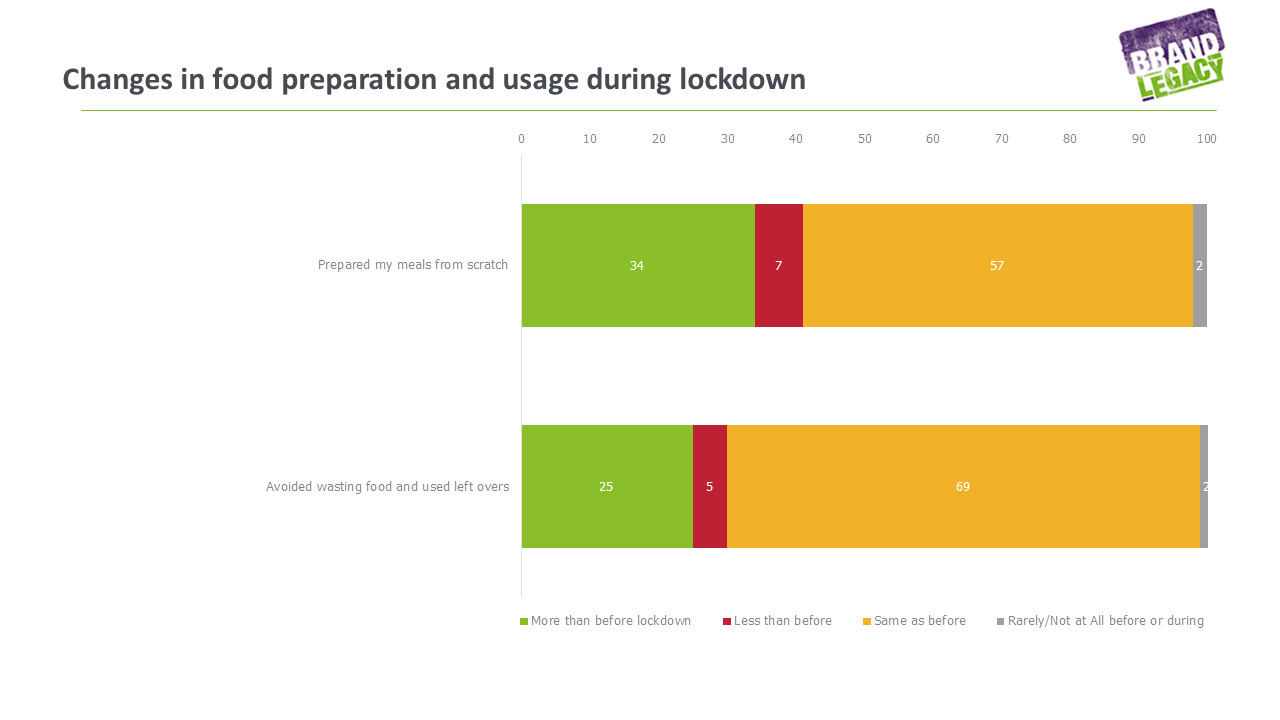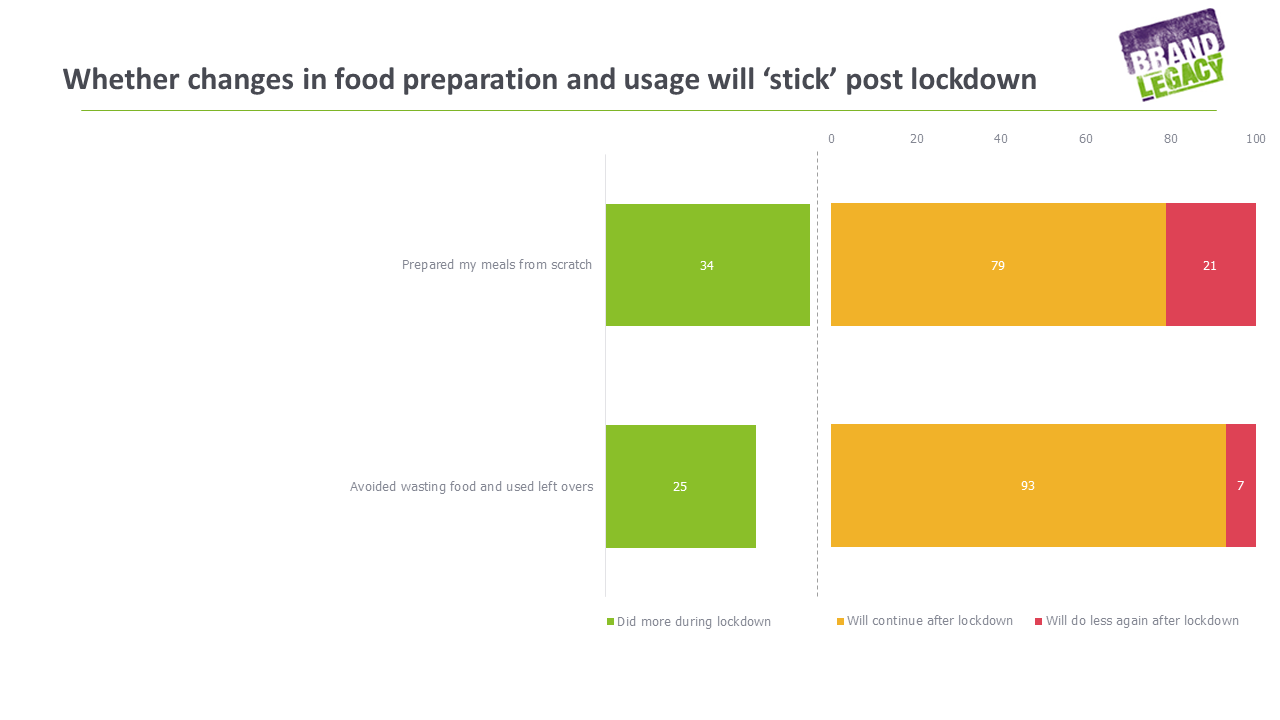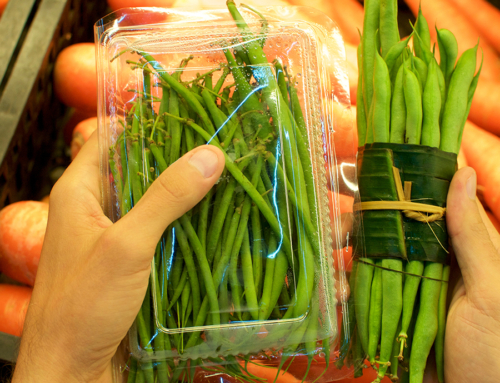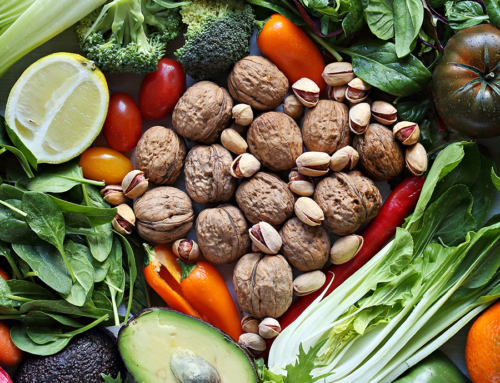Lockdown prompts more scratch cooking and less food waste – but will it last?
We asked 1,000 UK consumers to tell us how lockdown had changed their habits in shopping for food, preparing it and consuming it, and found that the biggest claimed changes were around preparing more meals from scratch and wasting less food.

As many as a third of consumers were more likely to prepare meals from scratch. While we know that lockdown created huge time pressures for some households, this indicates that it gave others the time to focus more on food preparation, combined of course with fewer opportunities to eat out. And with less frequent grocery shopping in lockdown, plus financial pressures perhaps also playing a part, consumers were evidently more careful about using up food and wasting less. 1 in 4 were doing this with very few believing they had become more wasteful.
Interestingly, these changes seem particularly prevalent among younger consumers. Before lockdown it was the 55-64 age band who were most likely to ‘very often’ prepare from scratch and avoid food waste. During lockdown it was the 18-34 age group who were most likely to say they were doing these things more – and particularly avoiding food waste.
Will these changes in behaviour last?

Among the third of consumers who increased scratch meal preparation, 79% think they will continue with this behaviour post lockdown, compared with only 21% who assume they’ll revert to previous patterns. And among the quarter who claim they wasted less food in lockdown, over 90% think this will continue.
Relative to other behaviours we asked about, these are high levels of claimed ‘stickability’. And their prevalence amongst younger consumers bodes well for longer term impacts. The reality may be different but we do see a clear desire for a more careful, less disposable mindset with more scratch cooking and less waste. And if that becomes a reality, it’s a forward step towards a more sustainable, less wasteful lifestyle.




